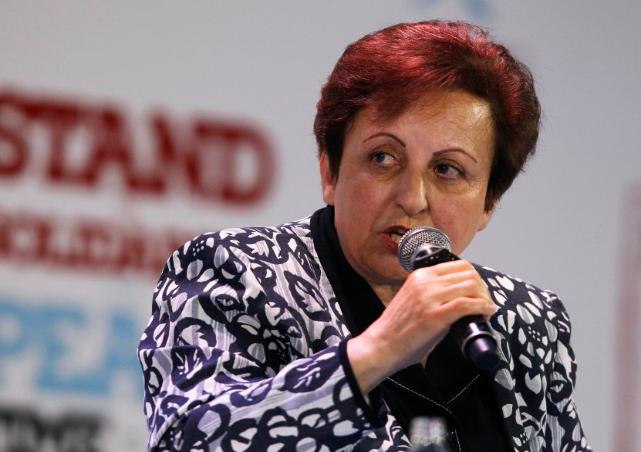London- Iranian Nobel peace prize laureate Shirin Ebadi on Saturday accused Iran’s Supreme Leader Ali Khamenei of being responsible for corruption spreading across his country and especially in the national judiciary system.
Ebadi is not only a lawyer but also a former judge and human rights activist and founder of Defenders of Human Rights Center in Iran.
The human rights activist, in a phone interview with Asharq Al-Awsat, said that the Chief Justice of Iran Sadeq Larijani was appointed by Khamenei, holding him responsible for the justice system morphing into an intelligence service determined to secure independence from the government. Ebadi then confirmed that the demand on Larijani’s resignation is only a result of the ongoing corruption added to the deteriorating state of affairs of prisoners in Iran left facing their slow deaths.
Ebadi has called on the head of Iran’s judiciary to step down after a string of hunger strikes by political prisoners. She then carried on explaining that the right to a fair trial for political captives has vanished years ago in Iran.
“Civil and social activists and thinkers who voice criticism or protest are put in jail and condemned to lengthy prison sentences and torture and persecution, while criminals, serial killers and those involved in embezzlement continue to abuse people under the shadows of a corrupted judicial system,” she said in a statement posted on the website of the Defenders of Human Rights Center, of which she is president.
Ebadi considered that current President Hassan Rouhani is an accomplice in the crime of oppressing the people of Iran, added to him not fulfilling pledges he took on his election campaign.
More so, given that Larijani was appointed by the supreme leader, he cannot be summoned by MPs for questioning and is not directly accountable to the public. Under his watch the judiciary has made a number of high-profile arrests of dual nationals.
In November, an Iranian MP questioned a minister over allegations that Larijani possessed 63 personal bank accounts filled with public funds. The judiciary later attempted to arrest the MP but was unsuccessful.
